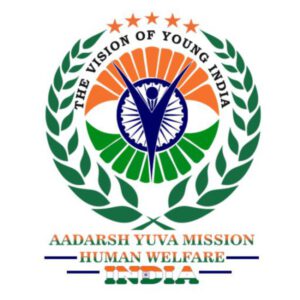The Hands Of God
“Trusting The Hands That Hold The Universe”
AnInitiative By Aadarsh Yuva Mission Human Welfare, India
![]()
 In A World Where Access To Healthcare Remains ADistantDream For Millions"The Hands Of God" Emerges As ATransformative Initiative, Dedicated To Bridging This Gap. Spearheaded By AadarshYuva Mission HumanWelfare India,The Project Is A Testament To The Power Of Compassion And Collaboration.With Its Guiding Principle, "Trusting The HandsThat Hold The Universe," The Initiative Seeks To Bring Free, High-Quality Medical Care To Underserved Populations.
In A World Where Access To Healthcare Remains ADistantDream For Millions"The Hands Of God" Emerges As ATransformative Initiative, Dedicated To Bridging This Gap. Spearheaded By AadarshYuva Mission HumanWelfare India,The Project Is A Testament To The Power Of Compassion And Collaboration.With Its Guiding Principle, "Trusting The HandsThat Hold The Universe," The Initiative Seeks To Bring Free, High-Quality Medical Care To Underserved Populations.
Leveraging The Collective Expertise Of Doctors, Hospitals, Diagnostic Centers, Pharmacies, And Other Healthcare Providers, "The Hands Of God"Aims To Build An Equitable Healthcare Ecosystem. By Addressing Immediate Health Needs And Fostering Preventive Care, The Project Envisions A Healthier, Empowered Society Where No One Is Left Behind Due To Financial Or Geographical Barriers.
Through Innovative Strategies Like Mobile Clinics, Telemedicine, And Community Outreach, "The Hands Of God "Not Only Delivers Lifesaving Services But Also Instills Hope And Resilience In The Communities It Serves.This Initiative Stands As A Beacon Of Humanitarian Action, Ensuring That Healthcare Becomes A Right, Not A Privilege.
The Hands Of God Initiative Aligns With Several United Nations Sustainable Development Goals (Sdgs).
Sdg1: No Poverty
- Alleviate Poverty By Reducing The Financial Burden Of Health care For Marginalized
- Offer Free Or Subsidized Medical Services To Those In
Sdg2: Zero Hunger
- TackleMalnutritionAndFoodInsecurityThroughNutritionEducationAndHealth
- Address The Link Between Nutrition And Overall Health, Especially In Vulnerable
Sdg3: Good Health And Well-Being
- Ensure Healthy Lives And Promote Well-Being For All At All
- Provide Essential Health care Services To Underserved
- Focus On Maternal And Child Health, Non-Communicable Diseases, And Mental
Sdg4: QualityEducation
- Conduct Health Education And Awareness Programs To Empower Communities With Knowledge About Disease Prevention, Nutrition, And Sanitation.
- Train Local Health care Workers To Build Sustainable Health
Sdg6: Clean Water And Sanitation
- Address Sanitation And Hygiene As Part Of Preventive Healthcare
Sdg8: Decent Work And Economic Growth
- Provide Employment Opportunities For Local Health care Workers And Support
- Build Health Systems That Contribute To The Economic Development Of Underserved
Sdg9: Industry, Innovation, And Infrastructure
- Leverage Technology Like Telemedicine And Mobile Clinics To Deliver Health care To Remote Areas.
- Invest In Innovative Health care Delivery Systems And


